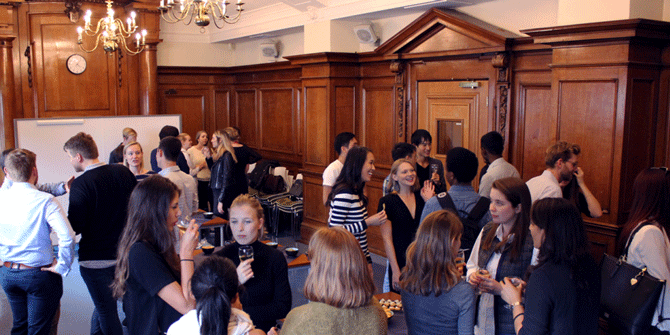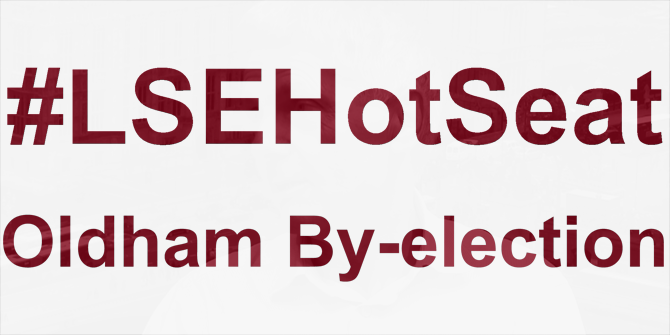David Coen, Alexander Katsaitis, and Matia Vannoni share their latest research on EU lobbying and its implications for a post-Brexit world.
Understanding why, when, and how the European Union (EU) and business interact will be crucial for UK policymakers and organised interests in the new post-Brexit world.
Business holds a special position on the Brussels circuit. It provides policymakers with valuable information and expertise to regulate one of the largest trading blocs in the world. Private interests such as companies and trade and professional associations actively mobilise to contribute to EU policymaking as a way of influencing policy. This contribution takes place through the European Commission’s consultations and the European Parliament’s committee hearings, producing policy reports, participating in industry fora, submitting opinions in online consultations, holding events with policymakers, and making statements to news outlets.
Therefore, the EU welcomes business mobilisation and the supply of their expertise. At the same time, navigating the EU’s policymaking landscape is not an easy task, and requires careful short and long term strategic decisions. The EU comprises of (a) intergovernmental bargaining where national governments, national parliaments, and national organisations are key actors. And (b) supranational authority where institutions such as the European Commission, the European Parliament, and EU agencies, such as the European Markets and Securities Authority, wield significant power over final decisions. To make things even more complex, most policymaking decisions are the outcome of iterated processes that cut across multi-level networks, inter-institutional deliberations, and negotiations that in some way or another involve all the above.
In our recent book Business Lobbying in the European Union we draw some lessons for policymakers and policy stakeholders on what to anticipate and how to plan future interactions with the EU and business in Brussels.
First of all, we find that EU-business relations have evolved significantly over time. Over the last 40 years, business interests diverted lobbying resources from national capitals to Brussels. In a process that started in the mid-80s and peaked in the late 90s, the EU saw most multinational, and “national champions” setting up exclusively dedicated government affairs offices. After the 2000s and especially following the Lisbon Treaty, industry-wide associations cemented as an additional layer of the firms’ lobbying. Significantly, after analysing more than 30 years’ worth of elite business and policymaker surveys and interviews, we find that although new tactics have been added to business’ lobbying-arsenal, such as political financing and media communications, government affairs representatives still gain access and influence over EU officials based on their reputation and reliability.
Brussels’ interest group population significantly diversified after the European Commission’s 2001 White Paper on Governance. Today, we see a variety of interests, such as think tanks, civil society organisations, and professional consultancies in Brussels lobbying the EU. Nevertheless, business interests still represent at least half of that population. This becomes easier to observe when we take a more granular perspective, examining the impact of public policy. Looking at a population of 12,000 registered interest groups, we observe that companies mobilise more around policy fields where regulation directly impacts their environment, such as trade or the environment, and tends to mobilise less around policy fields such as culture.
Similarly, following a survey of Members of the European Parliament we find that business is not given preferential access across all stages of the policymaking process. Rather, companies are more active in particular stages of the policy cycle, where policymakers seek a specific type of technical expertise. This targeted lobbying approach has meant that business tends to mobilise and cluster around different policy fields and policy cycle steps than civil society groups.
As business interests attempt to navigate in the EU’s complex policymaking terrain, each individual firm makes strategic choices with its government affairs’ offices aiming to achieve a competitive non-market advantage over other busines interests and influence EU officials. By opening up the ‘black boxes’ of companies during our research, we were able to study the career paths of hundreds of EU government affairs’ officials working for companies active in Brussels. Our results show that companies invest in managing the EU’s diverse expertise demand.
Significantly, whereas in the US we observe the ‘revolving-door phenomenon’ where policymakers move to the private sector and vice-versa recurrently, this is less prevalent in the EU. Most EU government affairs managers remain in office and reach seniority, gaining valuable expertise and knowledge in how EU institutions work and what the specific informational-expertise demands of their sector are. These managers develop, maintain, and expand their network with EU officials by understanding over time how to tailor their expertise to best fit the demand. This resembles more of a ‘sliding-door’, whereby there is a separation between the public and the private sector.
In the wake of Brexit, the starting point for UK policymakers and business should be that the EU has a unique style of interest intermediation. Put simply, they cannot apply the same lobbying strategies applied for example in Japan or Germany in Brussels. Taking stock from their rich experience, UK stakeholders must update and adapt their lobbying rulebook. As they will have less access to EU procedures, institutions, and policymakers than before; they will seek greater 3rd party representation to maintain contact and relevance in the EU’s policy circuit. Diverse coalitions are likely to become the new norm, this translates into including NGOs, think tanks, and other business interests in long term strategy. Naturally, these changes have micro-implications, UK policymakers and business will need to upgrade and extend their government affairs’ capacity by investing in their staff. Post-Brexit UK-EU relations are evolving at a fast pace, it remains unclear how this will impact business. Researching business lobbying in the EU allows us to estimate the relationship’s potential trajectory, and offers valuable options to business and policymakers.
‘Business Lobbying in the EU’ is available now via Oxford University Press.
Note: this article gives the views of the authors, and not the position of the LSE Department of Government, nor of the London School of Economics.
Image credit: Image contains elements of ‘Handshake’ by Aidan Jones





